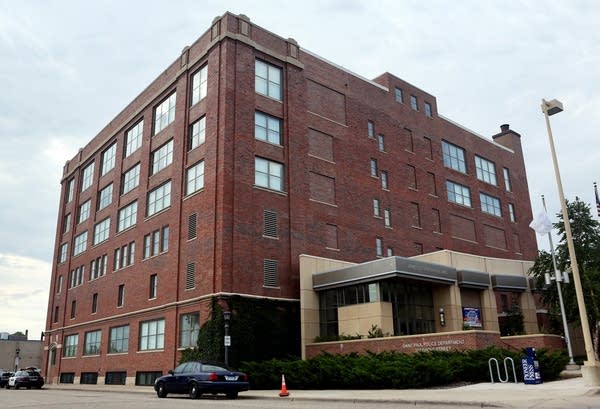Renovated St. Paul crime lab costs more, will do less
Go Deeper.
Create an account or log in to save stories.
Like this?
Thanks for liking this story! We have added it to a list of your favorite stories.

The St. Paul City Council released more than a million dollars in funding Wednesday to fix the troubled St. Paul police crime lab.
Police suspended drug testing in July after defense attorneys exposed flaws in the lab's work. The suspension threw thousands of drug convictions into question.
The additional funding, which totals $1,023,976 for 2013, will be used for equipment, building improvements, training, consultants and salaries.
The renovated lab will cost nearly twice as much to operate, although it will no longer test drugs.
Turn Up Your Support
MPR News helps you turn down the noise and build shared understanding. Turn up your support for this public resource and keep trusted journalism accessible to all.
City council members voted to release the funds after a brief presentation by St. Paul Police Assistant Chief Bill Martinez and Sgt. Patricia Englund.
Englund told the council the lab will not resume drug testing, but will continue to perform fingerprint analysis, crime scene processing, video analysis and reconstruction of crash scenes.
Police will pay for two employees at the state Bureau of Criminal Apprehension lab to test drug evidence on behalf of police.

The lab plans to hire forensic scientist with a certification in fingerprint analysis to manage the lab, and all employees will receive more training, Englund said.
The renovated lab will cost $1.5 million a year to run. The lab's previous annual budget was about $800,000.
"We're dedicated to this," Englund said. "It's an important program to us."
But city council members criticized the police for not providing more information to the public. Police have said little about the ongoing work of two consultants hired in August to review the lab. A report based on the consultants' findings is expected to be released this month.
Council president Kathy Lantry said she wanted to see more details up front.
"Nobody showed their homework," Lantry told police.
Council member Dave Thune questioned whether it was worth spending $1.5 million a year on a lab that only tests fingerprints. He said the extra spending will create a $700,000 budget shortfall next year that he expects will result in cuts to other departments and programs.
"This will come back to haunt us," Thune said.
STATE CRIME LAB PICKS UP DRUG TESTING
The St. Paul crime lab provided drug testing for Ramsey, Washington and Dakota Counties. When it suspended drug testing, the counties sent drug evidence to the Bureau of Criminal Apprehension lab instead. That arrangement will continue, according to prosecutors and law enforcement officers.
The Dakota County Drug Task Force was perhaps the St. Paul police lab's biggest client. The task force handles 300 to 500 cases each year. Dakota County Sheriff Dave Bellows said he has confidence in the Bureau of Criminal Apprehension lab.
"I know that the big concern by the BCA was that they were going to be inundated with so much more evidence being that the St. Paul lab had to shut down," he said. "But frankly, I think they've done a pretty good job of keeping up with the volume that they've received."
Washington County Attorney Pete Orput said St. Paul Police Chief Thomas Smith should be congratulated for how he handled the lab scrutiny.
"I think Tom Smith's leadership was outstanding," Orput said said. "He and his command staff got on it right away, didn't prevaricate or play games, looked into it, agreed that changes needed to be made, shut it down right away, and now they're rebuilding it the right way."
Ramsey County Attorney John Choi also praised Chief Smith.
"He knew right away that this was a big deal, so he took immediate action," Choi said. "I think in a lot of ways this was his leadership moment."
Attorneys are still waiting for a Dakota County judge's order in the case that exposed problems at the lab.
The order will directly affect only a handful of drug cases, but it could have broader impact if defense attorneys use it to make their case for opening up past drug convictions. Prosecutors in Ramsey and Washington Counties say they will also carefully consider the findings.
The judge's order is expected by late March.




